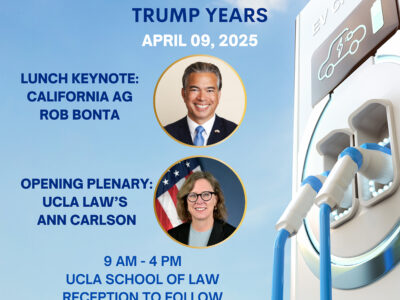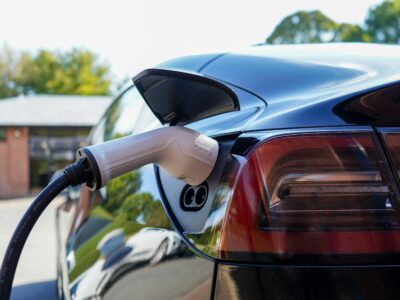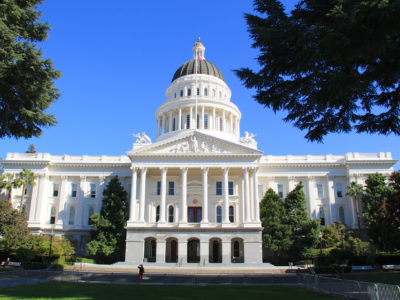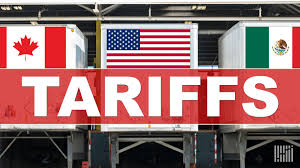Transportation
Local EV Leadership During Federal Withdrawal
The clean mobility transition is in local hands.
The federal landscape for electric vehicle (EV) investment is laden with pause and uncertainty. High-profile program discontinuations–both planned and executed–threaten to disrupt EV deployment efforts, while unpredictable tariffs interfere with drivers’ ability to afford vehicles. As local leaders work to reconcile ambitious transport decarbonization goals with the current lapse in federal climate leadership, public planners, …
Continue reading “Local EV Leadership During Federal Withdrawal”
CONTINUE READINGIs Trump Good for the Oil Industry?
Not particularly, it would appear. If there’s an effect, it’s not big enough to hit the eyes.
No doubt, the industry would rather have Trump in office than Harris. But the effect on industry profits may only be incremental. It would be great to see a rigorous statistical analysis by a finance expert, but a bump to oil profits isn’t obvious in share prices.
CONTINUE READINGGetting Creative on Vehicle Emissions
UCLA Law set to host a symposium on April 9 on ways to charge ahead on cutting emissions.
These are tough times for lovers of zero emission vehicles–and clean air. I probably don’t need to recite the threats to both, but here’s a sampling: the Trump Administration has pledged to roll back federal air quality standards and mobile source emissions standards; is gutting funding for EV charging networks (and is even, maddeningly, shutting …
Continue reading “Getting Creative on Vehicle Emissions”
CONTINUE READINGOur 2012 Report Predicted the Future of Electric Vehicles in 2025: How Off Were We?
Time to open up the 2012 time capsule PDF
Back in 2012, CLEE and the Emmett Institute released a report called “Electric Drive by ’25,” with the relatively bold subtitle “How California Can Catalyze Mass Adoption of Electric Vehicles by 2025.” The report cited 2011-12 EV sales as reason for optimism on achieving mass adoption by 2025: Early results from the introduction of new …
CONTINUE READINGState-Level Actions To Decarbonize Aviation
New CLEE report explores the risks of federal preemption.
Aviation is a significant and growing source of greenhouse gas emissions. But the federal government in the United States has failed to address it so far. In response, some state policy makers and advocates are now considering legal avenues to effectively require the use of sustainable aviation fuels, which emit less carbon than traditional jet …
Continue reading “State-Level Actions To Decarbonize Aviation”
CONTINUE READINGBanking and Exchange Programs to Mitigate Vehicle Miles Traveled
The 1950s has been called the decade of the American Dream. The United States economy grew by 37 percent, and homeownership surged as suburban houses—equipped with their white picket fences—“sold like hotcakes.” But this American Dream has come at a steep cost. Let’s fast forward to today; more than half a century of government housing …
Continue reading “Banking and Exchange Programs to Mitigate Vehicle Miles Traveled”
CONTINUE READINGCongress Lacks Authority to Review California’s Car Waiver
It’s a complicated issue but the answer is clear: the Congressional Review Act does not apply.
States get many kinds of waivers from the federal government. For example, many states (including quite a few Red states) have received waivers from some Medicaid requirements. Overturning the EPA vehicle waiver would expose all state waivers to the risk of being overturned under the Congressional Review Act, contrary to the plain language of that statute.
CONTINUE READINGTrump’s Seven Most Anti-Environmental Moves — and How to Push Back
There were dozens of actions, all harmful to the environment. These are the worst of the worst.
In the month since he reentered the White House, Trump has dedicated himself to knee-capping environmental protection through a series of executive orders. These orders aim to eliminate crucial environmental regulations, eviscerate key agencies like EPA, arbitrarily halt government funding, and eliminate environmental restraints on the private sector. But these are not done deals, and there are ways of pushing back.
CONTINUE READINGWhat can we learn from EU’s battery regulation?
New CLEE report with model policies to ensure a responsible EV battery supply chain
From cars and trucks to buses and trains, electric vehicles are playing an increasingly vital role in decarbonizing mobility and reducing oil dependence However, this transition brings with it a significant challenge: the immense pressure on battery supply chains. As demand for EVs increases, consumer countries will need to develop and implement policies that address the …
Continue reading “What can we learn from EU’s battery regulation?”
CONTINUE READINGTariffs and Clean Energy: What You Need to Know
The effect of tariffs on energy markets is complex, and a lot depends on the details.
International trade economics is complicated, and we can’t be certain of how tariffs will work out, particularly in the long term when economies have fully adjusted to them. Trump’s hope is that the tariffs will cause a boom in U.S. production, although there is also evidence that protected industries are less efficient and innovative, resulting in higher consumer prices. Impacts on clean energy could be negative, The same is true for impacts on fossil fuels.
CONTINUE READING










